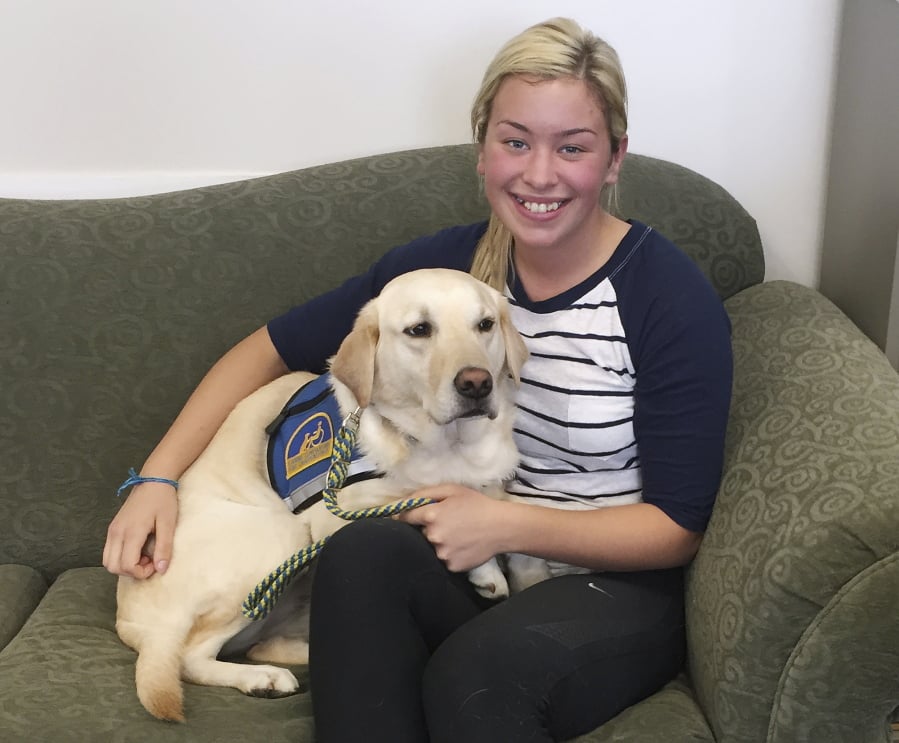HARTFORD, Conn. — As dogs and other animals are increasingly used in courts to comfort and calm prosecution witnesses, a few voices are calling for keeping the practice on a short leash, saying they could bias juries.
The use of dogs in courts has spread quickly across the U.S. with a growing number of laws and rulings in its favor — and, outside the legal world, a significant increase in the use of emotional support animals by the public.
There are now more than 155 “courthouse facility dogs” working in 35 states, compared with 41 dogs in 19 states five years ago, according to the Courthouse Dogs Foundation in Bellevue. And that’s not counting an untold number of “emotional support dogs” that have been allowed case by case in many states. Many witnesses have been child sexual assault victims.
There has been a divide among judges, however, with some not allowing dogs because of potential bias against defendants. And many defense lawyers don’t like the practice.
Having dogs and other emotional support animals in the witness box can illegitimately boost witness credibility and prejudice juries against defendants, Denver defense lawyer Christopher Decker argues. He has unsuccessfully fought the use of dogs in criminal trials several times.
“I think it distracts the jurors from what their job is, which is to determine the truthfulness of the testimony,” Decker said. “It tends to imply or infer that there has been some victimization. It tends to engender sympathy. It’s highly prejudicial.”
Facility dogs are trained to provide companionship without disruption in courthouses, prosecutors’ offices and other legal settings. They work at courthouses all day, then go home with their handlers. Emotional support and “therapy” dogs are pets that can be registered with organizations and may or may not have been specially trained.
Proponents say dogs help reduce the anxiety of traumatized victims, especially children, so they can overcome the stress of telling their stories in a deposition room or courtroom.
“We need to address how traumatizing it is for children to go through this process,” said Ellen O’Neill-Stephens, a former prosecutor who founded the Courthouse Dogs Foundation. “The whole point for me is I want to make it easier for people to engage in this process without suffering additional emotional trauma.”
At least eight states have laws allowing the use of dogs to comfort children and other vulnerable witnesses. Similar proposed laws are pending in at least another four states, while court rulings in a handful of states have set precedents allowing the use of emotional support dogs.
Ivy Jacobsen, of Lake Stevens said three facility dogs helped her get through the three trials it took before her father was convicted of sexually assaulting her when she was a teenager. After two hung juries, he was convicted at the third trial and sentenced to 16 years in prison in 2013.
The judge in Jacobsen’s case did not allow a dog to accompany her on the witness stand during the trials because of objections by the defense. The animals helped her outside the courtroom, she said, during private questioning by defense lawyers, counseling sessions and in courtroom hallways after proceedings.



